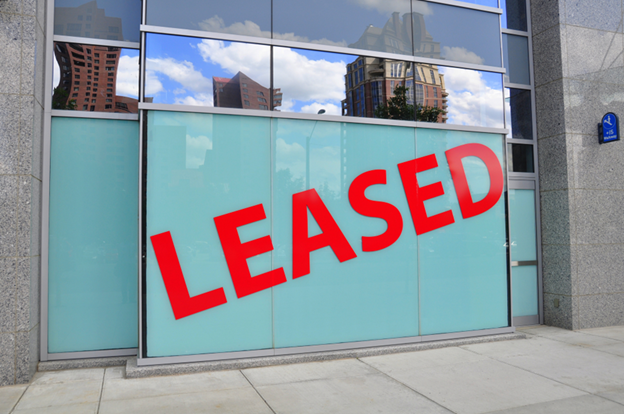The valuation process for many assets, including a home, bank accounts, and cars, is relatively simple. However, hard-to-value or unique assets are more complex, such as determining the appraised value of a sole proprietorship company, collectibles, or alternative investments. There are conventional valuation procedures for general assets, such as cost and market value methods. Unique asset valuations are challenging because it requires deep understanding and using specific systems to appraise and then estimate the monetary worth of the assets. Individuals and entities must consider all chattels, including unique holdings, to create an efficient estate plan. If you have questions about hard to value assets, please get in touch with an experienced Arizona estate planning lawyer at Harrison Law, PLLC, by calling 480-320-2310.
What are Hard to Value Assets?
Hard-to-value assets are holdings and investments, such as bonds, with no readily available fair market values or market price information. Therefore, a knowledgeable appraiser must complete a thorough appraisal meeting federal and state guidelines. Some examples of unique and hard-to-value assets include the following:

- Traditional and specialty real estate
- Mortgage loans and notes
- Gas and mineral oil
- Gold, silver, platinum, and other precious metals
- Life insurance trusts
- Alternative investments such as private equity, stocks, bonds, and Hedge Funds
- Collectibles, including paintings, stamps, coins, and classic cars
- Sole proprietorship, limited liability companies, and other close corporations
The United States continues to create new systems for determining the worth of hard-to-price assets. However, the processes still present many challenges.
Unique Asset Valuation Presents Complex Challenges and Benefits
Hard-to-price assets present many hurdles to overcome but also have many benefits. One benefit is they tend to hold their value, while general assets may depreciate quickly. Even in inflation and if the nation’s currency continues to disintegrate, unique assets such as real estate and minerals will still hold value. The investments will remain useful for exchanging them for other valuable items. They are an excellent barricade against world inflation, providing a cushion for asset holders.
Intangible assets and alternative investments are often tricky to liquidate. Therefore, they present more valuation challenges than many other resources. However, the investments have fundamental value. Because transferring liquid assets into cash is relatively easy, determining the value is also simpler. Hard-to-value property, such as non-liquid assets, can help people and businesses increase revenues and act as buffers against liquid asset depreciation but come with additional challenges. Unique assets may also not reach their total value until the holder’s death. Therefore, there is no universal system to follow, and determining fair market value requires experience and extensive research.
The Primary Valuation Methods for Hard-to-Value Assets
As with general assets, asset valuation for unique assets is the process of determining the present fair market value. Professional appraisers and assessors use valuation models, book values, comparables, and cash flow analysis to determine the current cost estimation. The methods play a crucial role in finance and estate management, consisting of objective and subjective monetary value measurements. There are three primary valuation approaches for more challenging-to-value assets, and those include the income approach, market approach, and cost approach.
Income Valuation Approach
The income valuation approach is the best real estate monetary value assessment method, and the assessor uses the property’s rental income to estimate the fair value. Their calculation divides earnings before interest and taxes by the capitalization rate.
Market Valuation Approach
The market valuation approach is a method to assess the value of intangible assets, security, or business ownership assets. The appraiser considers the market prices by reviewing comparable assets or businesses on the market or recently sold.
Cost Valuation Approach
The cost valuation approach is the most reliable process for unique property valuation. The assessor calculates the monetary worth by the estimated land value plus improvements and subtracts property depreciation.
Hard to value assets are complex, and there are many challenges to overcome during the estate planning process. According to the American Bar Association, it is crucial for estate planners to obtain sound valuations of hard to value assets. Quality asset valuations can prevent penalties, unexpected tax bills, audits, and more. A knowledgeable estate planning attorney at Harrison Law, PLLC could answer questions and help determine the value of the unique assets accurately.
Integrating Hard-to-Value Assets Into an Estate Plan
An estate plan is a crucial document for organizing assets and distributing assets. Efficient estate planning must include a complete list of assets, even those that are more difficult to value. Once the individual or business identifies the value of all general and unique assets, they can incorporate them into the estate plan. A comprehensive list and estate plan will prevent disputes and other complications from occurring down the road. It will also help the trustee and heirs person in charge of the estate carry out the estate owner’s wishes following their death or incapacitation. Estate planning is a complex undertaking, and that is especially true when it includes assets that are difficult to value. After the estate plan is complete, reviewing and updating it as needed is vital to ensure the document is current.
Hard-to-Value Assets and Internal Revenue Challenges
Many IRS challenges people and businesses face involve problematic asset assessments. According to the Internal Revenue Service, estate planners must ensure asset valuations are complete and use federally accepted methods. They further require qualified and credible appraisers to complete the assessments and appraisals for unique assets. Working with an estate planning lawyer seasoned in asset valuation can help the party avoid many problems, including additional fees and higher tax payments.
Contact an Experienced Estate Planning Attorney Today
While determining the value of general assets may present little problems, other properties and investments are more complex. Choosing the correct value of items, including collectibles, minerals, and real estate, will require various calculation formulas. It also calls for solid knowledge of valuation and assessment methods that comply with federal and state rules and regulations. For help with determining the value of your hard to value assets, please call a seasoned estate planning lawyer at Harrison Law, PLLC, at 480-320-2310 to schedule a consultation.
© 2023 Matthew W. Harrison and Harrison Law, PLLC All Rights Reserved
This website and article have been prepared by Harrison Law, PLLC for informational purposes only and does not, and is not intended to, constitute legal or financial advice. The information is not provided in the course of an attorney-client relationship and is not intended to substitute for legal advice from an attorney licensed in your jurisdiction.






